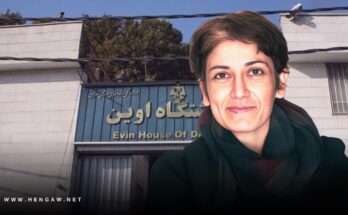Source: RFE/RL’s RadioFarda

Lawyers for 11 women’s rights activists who were detained in August in Iran’s northwestern Gilan province say their clients have been sentenced to long prison terms amounting to more than 60 years.
The activists were detained separately by security and intelligence forces as officials attempted to silence critics ahead of the first anniversary of 22-year-old Mahsa Amini’s death in police custody in September 2022 after being arrested for allegedly violating the country’s strict Islamic dress code.
Mostafa Nili, representing two of the activists, told the Tehran-based Shargh network on March 27 that the sentences were handed down by an Islamic Revolutionary Court in Gilan’s capital, Rasht.
The activists were charged in connection with their involvement in women’s rights campaigns.
Forough Samiminia received a sentence of three years, six months, and one day for “assembly and collusion to disrupt national security,” and an additional two years, seven months, and 16 days for “membership in an illegal group.”
Jelve Javaheri was sentenced to one year for “propaganda against the system.”
Other activists, including Zahra Dadras, Sara Jahani, Matin Yazdani, Yasmin Hashdari, Shiva Shahsiah, Negin Rezai, and Azadeh Chavoshian, faced similar charges, receiving sentences ranging from one to six years for charges including “assembly and collusion” and “forming an illegal group.”
Following their arrest, sources close to the activists told RFE/RL’s Radio Farda that after being arrested, the activists were subjected to pressure to confess to “fabricated deeds.”
One source said some of the women have faced “intense interrogation and physical abuse.”
At least 500 people have been killed since protests broke out following the death of Amini, an Iranian Kurdish woman who was arrested while visiting Tehran by Iran’s notorious morality police for allegedly wearing a hijab scarf improperly.
The Woman, Life, Freedom protests and civil disobedience against the compulsory hijab that swept the country following Amini’s death involved tens of thousands of Iranians, many of whom were already upset over the country’s deteriorating living standards. Campaigns were also launched against the discriminatory hijab regulation.
In the face of the unrest, some religious and government figures have repeatedly advocated for a tougher stance by the government against offenders, even going as far as encouraging a “fire-at-will” approach against noncompliant women.
The UN Human Rights Council’s fact-finding committee has categorized such actions against women as a crime against humanity.




